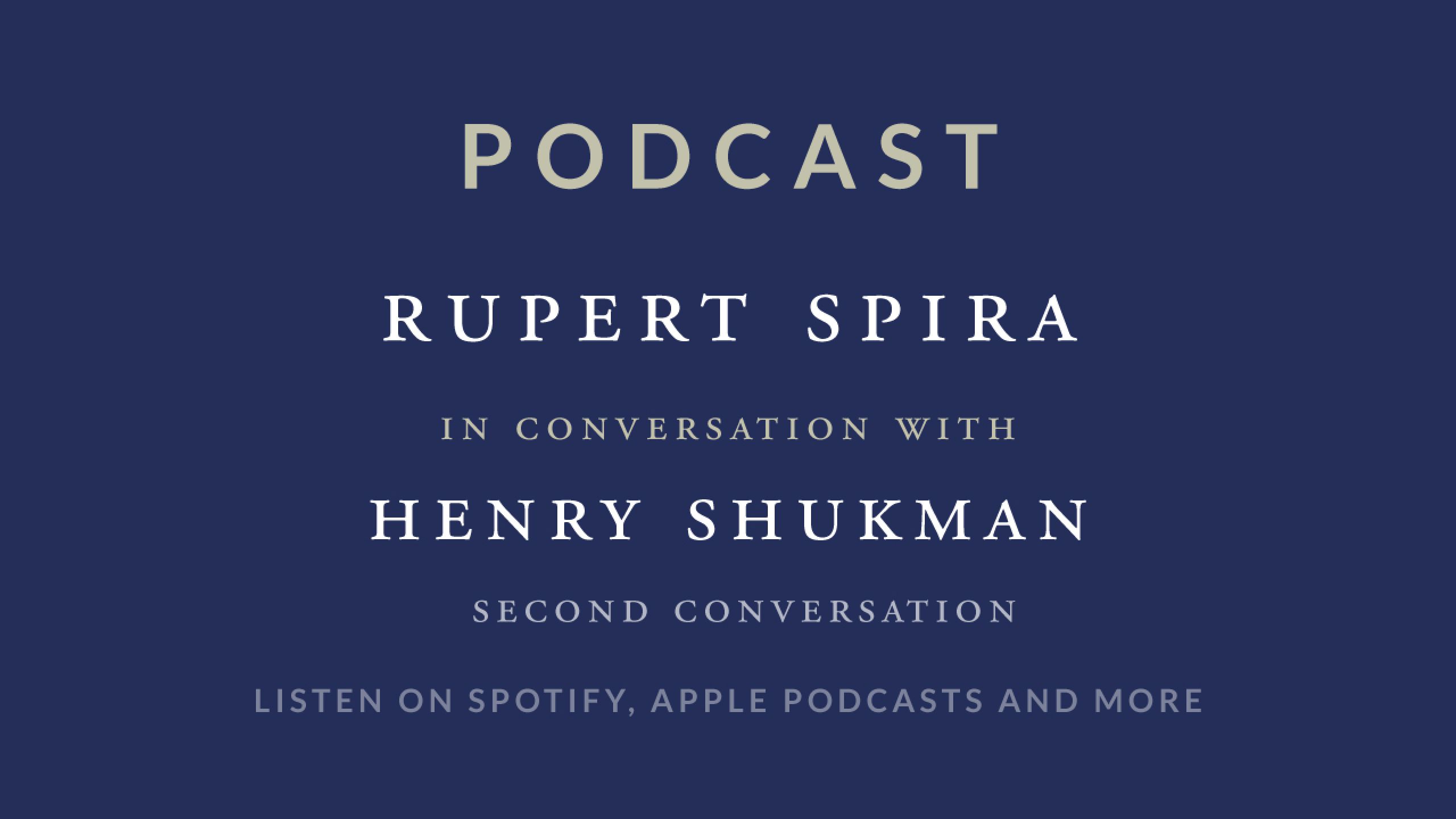Since the previous conversation, they have read each other’s books, and the conversation begins with expressions of mutual appreciation. Henry observes a seamless development in Rupert’s work from ceramics to teaching – from words etched into bowls, to the disappearance of the tangible ceramic form, to the spoken word and the re-emergence of form in Rupert’s books, a line of beauty running throughout. He also remarks on a common source for both of them in early China. The great classic collections of koans Henry studied and the poetry that lit him up as an adolescent all originate in the Tang dynasty. And Song dynasty ceramics, their forms, glazes and firing techniques, have always been major inspirations for Rupert.
They discuss their respective apprenticeships in great depth. At first artistic, then spiritual, the training for both men involved total immersion in traditional forms and, crucially, surrender to a master or teacher. They are in full agreement about the unavoidable necessity of this process, in whatever discipline, and how much of it is hard, if not downright painful. Having been fully through the training, only then is the student or apprentice able to make the form and expression their own.
Henry, describing the baffling nature of koan training, says you have no idea what to do, how to do it, or how any of it actually works. But having trust in your teacher, you allow the process to unfold, and the koans do their work on you. Rupert talks about the forms as repositories of the distilled essence of generations of understanding to which you just have to open yourself in order to receive their encoded wisdom.
They consider the place of this type of lengthy, one-to-one training in relation to the wish they both have to make the teaching available to large numbers of people, especially today with the potential vast reach of the internet. Recognising the immeasurable value of what they were so fortunate to go through, they discover they have both been wondering how and if it’s possible to go deeply with those few who are interested and widely to many simultaneously.
In response to Steve’s question – does evocative, spiritually impactful art require an artist who is spiritually informed? – they both essentially agree it does not. But what is required is sensitivity to and awareness of suffering. An artist with great humanity, such as Rembrandt, Cézanne, Beethoven or Thomas Hardy, whose poetry Henry loves, is able to enter very deeply into the whole human drama, with powerful empathy and understanding, and thereby convey what is eternal and universal.
Rupert says the overt purpose of their work is not to draw attention to the non-dual reality. Rather, great artists are in the service of truth, whether they know it or not, because of their total immersion in the experience they’re seeking to recreate and to which they bring ‘a disinterested affection’. Many artists go into their studio, or place of work, and enter a sphere of activity that puts them in touch with something in themselves they’re not necessarily in touch with in their daily life. They access the place from which they can produce work beyond their own individual self, and because of this impersonalisation, the activity is almost addictive. They don’t do it consciously or know how they do it.
The conversation ends with a request from Steve for a third instalment, to make it a triptych. While neither Rupert nor Henry consider themselves masters, more like very good and eternal students who nonetheless recognise their current position as disseminators of whatever understanding they have arrived at, Steve suggests they re-explore the topics they’ve been examining from the point of view of the role of master.
